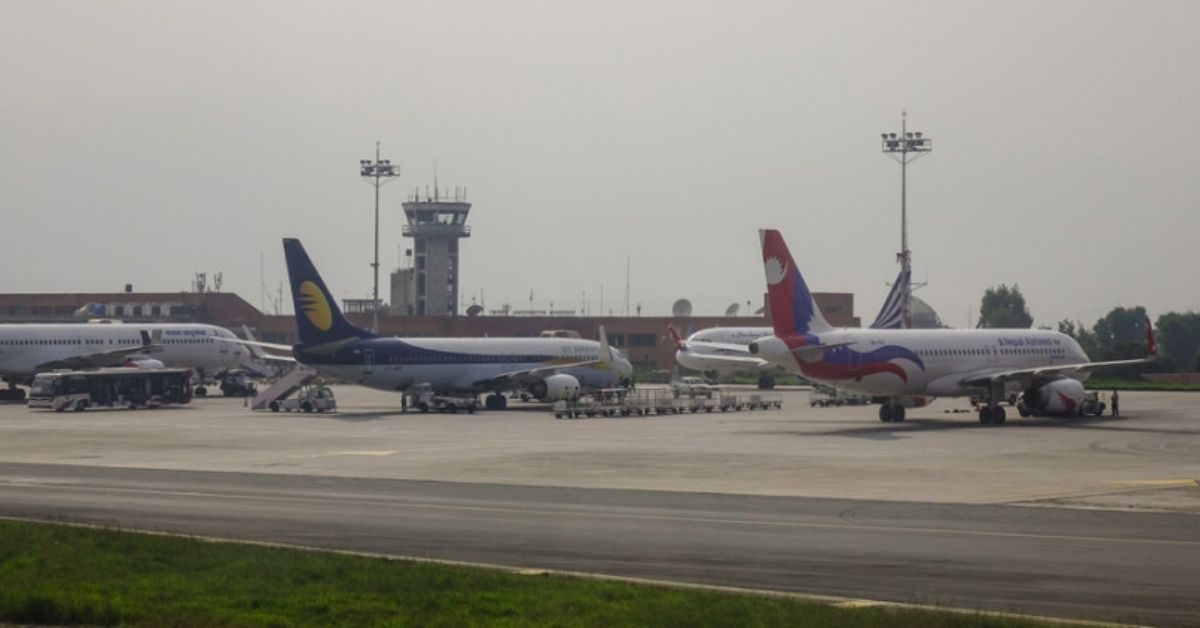Subarna Shristi Private Limited, a Kathmandu-based medical equipment supplier, had ordered 42 oxygen concentrators from the US and the consignment was supposed to arrive in Kathmandu by air on May 7.
But with the government suspending international flights from the midnight of May 6, the company is worried about the delivery of the consignment.
The government, on May 2, decided to halt all international flights, except for two flights a week between Nepal and India, from the midnight of May 6 to May 14. The flights suspensions are part of the government’s Covid-19 containment measures. Most of the country is already under prohibitory orders with people confined to their homes, businesses closed and vehicles forced off the road.
“The consignment of oxygen concentrators was supposed to land in Qatar on May 5 and arrive in Nepal on May 7 by a regular flight,” Kumar Dahal, manager at Subarna Shristi Private Limited, said. “Now we will have to rely on chartered flights arranged by the government to bring the consignment from Doha to Kathmandu.”
After the recent surge in Covid-19 cases, the demand for oxygen concentrators, an equipment which takes in air, separates the oxygen and delivers it to the patient, has gone up across the country, according to suppliers.
These equipment are procured by households with respiratory illnesses and in recent days by those in home isolation for Covid-19, although these concentrators aren’t of much help for serious patients cases requiring higher supply of oxygen.
Suppliers said almost all the oxygen concentrators in the market have already been sold causing an acute shortage of the equipment.
And with the suspension of the international flights, they are not sure whether these equipment would be available in the market any time soon. With the Covid-19 situation getting out of control, they fear the flight suspension could prolong further.
According to medical goods suppliers, they are working to import oximeters, masks, oxygen concentrators, high flow oxygen machines, nebulizers, ventilators, insulin pumps, cannulas among other things by air considering their urgent need in the country.
“After the suspension of regular flights, there is an option of bringing the goods on chartered flights,” said Suresh Ghimire, president of Chemical and Medical Suppliers Association of Nepal. “But, they can be brought only after sufficient amounts are collected and this could take time.”
The suppliers have also been using the sea and land routes to bring medical goods, particularly from China and other countries.
But, it takes months to bring the goods by land and sea from China.
Suppliers said they were forced to look for Covid-19 related medical supplies elsewhere after India banned the export of vaccines, oxygen and remedesivir injection among other things after facingm acute shortage at home.
According to Binod Manandhar, general secretary of the association, they have been importing goods as per the market demand and the existing flights suspension could delay the delivery of already finalized consignments.
“Until last week, suppliers had around 700 oxygen concentrators and all of them have been sold,” said Manandhar. “We are not sure whether more oxygen concentrators would arrive any time soon since the flights remain suspended.”
According to office bearers at the association there are around 40 firms involved in the import of medical logistics and these firms were preparing to place orders for over 2,000 oxygen concentrators before the flights were suspended.
Manandhar is concerned that import of these items may be affected if not halted fully.
Suppliers also said goods brought on chartered flights would cost more compared to those brought on regular ones and prices of these goods have gone up also due to a global spike in demand.
“Medical goods especially those related to Covid-19 are becoming expensive at the factories themselves as they are in high demand everywhere,” said Manadhar. “Also the weakening of the Nepali currency has made imports more expensive.” On Wednesday, the exchange rate was Rs 118.47 per US dollar.
Government officials also admit that importing medical supplies may not be as easy with the normal flights suspended. But, Dr Dipendra Raman Singh, director general at the Department of Health Services, said the government is constantly in touch with the private sector and would make necessary arrangements for facilitating the imports.
Source: Kathmandu Post







